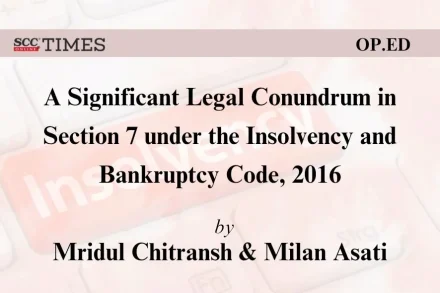
A Significant Legal Conundrum in Section 7 under the Insolvency and Bankruptcy Code, 2016
by Mridul Chitransh* and Milan Asati**

by Mridul Chitransh* and Milan Asati**
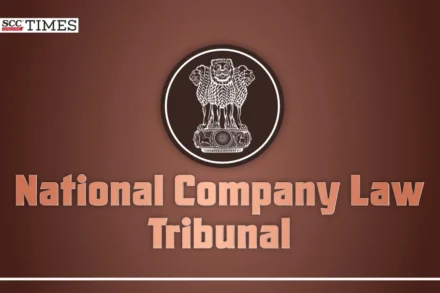
The RP sought exclusion of the time it took for NCLT to decide the applications filed under Section 19 of the IBC regarding the non-cooperation by the Company.
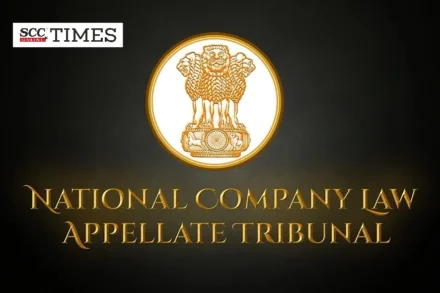
“The impugned order is exclusively interlocutory in nature which is yet to be considered on merits and yet to be given a final shape till the conduct of the final hearing when the interim reliefs prayed for, are heard and decided by the Tribunal.”
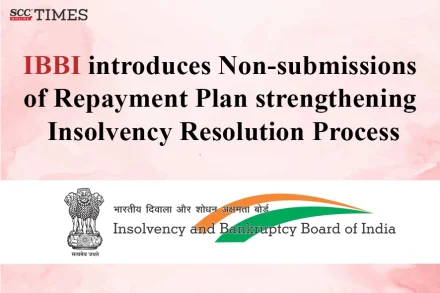
Enhancing creditor strength through faster debt recovery.
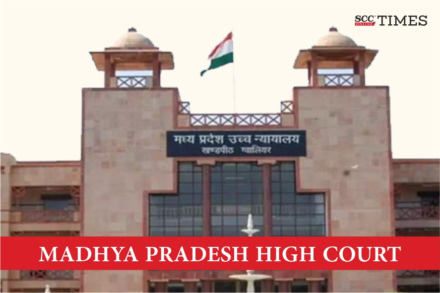
“Section 94 of IBC gives remedy to “debtor’ only to either apply personally or through a Resolution Professional to the Adjudicating Authority for initiating the insolvency resolution process.”

The NCLT gave the first right to buy shares to the petitioners and then the Deccan Group. If neither party purchased the other’s shares, the NCLT would consider winding up the company under Section 242(1)(b) of the Companies Act.

The NCLT acknowledged the impact of force majeure events, particularly the unprecedented rise in coal prices and operational disruptions caused by the COVID-19 pandemic on Corporate Debtor.

“The present one is a case where material facts have not been disclosed by the Applicant Company, violating Section 230 (2)(a) of the Companies Act, 2013, which in our considered opinion is bound to prejudice the public interest at large.”

It is an elementary principle that when a public authority is vested with specific powers, it is duty bound to act accordingly. Therefore, any failure to exercise statutory powers gives rise to a cause of action to secure performance of such duty by way of issuance of writ of mandamus under Article 226.
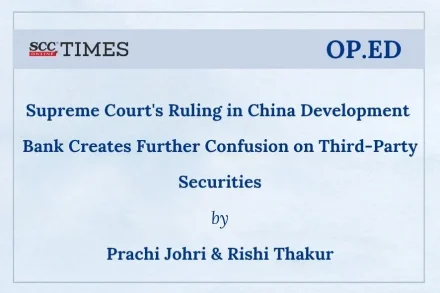
by Prachi Johri* and Rishi Thakur**

A plain reading of Section 32A IBC reveals that once a resolution plan is approved under Section 31, the Corporate Debtor shall not be prosecuted for an offence committed prior to the commencement of the CIRP. However, this immunity does not extend to the erstwhile officers and persons responsible for the conduct of its business prior to CIRP.
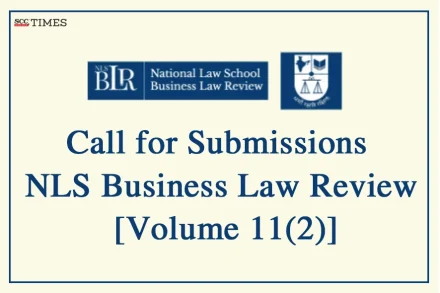
Editorial Board to the NLS Business Law Review is calling for submissions for Volume 11(2) of the Journal
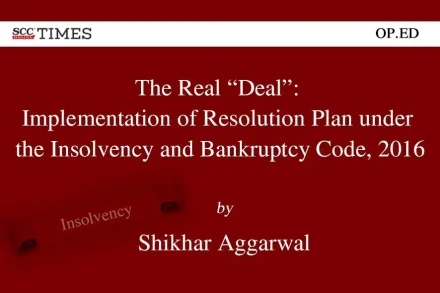

“The essence of the IBC lies in resolving insolvency matters through a process driven approach, and any deviation from its prescribed scope would undermine the legislative intent of the Code.”

“Decision taken by the CoC for liquidation in commercial wisdom of the CoC should not be interfered with by the Adjudicating Authority.”
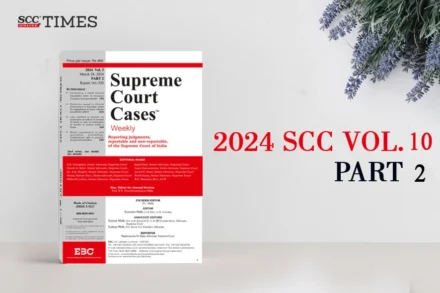
Bombay Stamp Act, 1958 (60 of 1958) — Ss. 33, 34, 37, 4(2), 4(1) and Sch. I Art. 25 Expln. I — Stamp duty on agreement to sell — Liability to pay under the 1958 Act
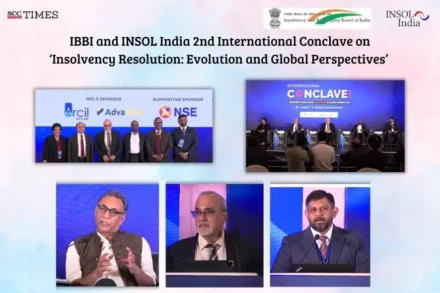
The Insolvency Bankruptcy Board of India (‘IBBI’) and INSOL India held the 2nd International Conclave in Delhi on 7th December to engage in the path-breaking discourse surrounding the ever-evolving space of insolvency and bankruptcy.

The NCLT held that non-delivery of possession despite payments and continued acknowledgment of liability through emails and communications proved default under Section 7 IBC.
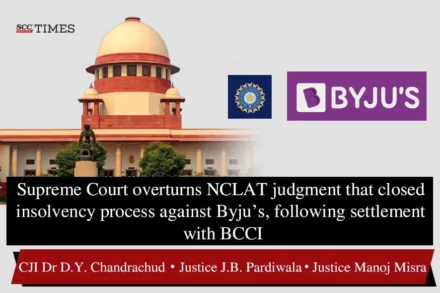
The present appeal raises substantial questions about the legal framework governing the withdrawal of a CIRP; the settlement of claims after the admission of an application instituted by a debtor; and the scope of the inherent powers vested in the NCLAT under Rule 11 of the NCLAT Rules.

The NCLT held that the Resolution Professional does not have adjudicatory powers to invalidate or challenge the charges based on an absence of NOC.